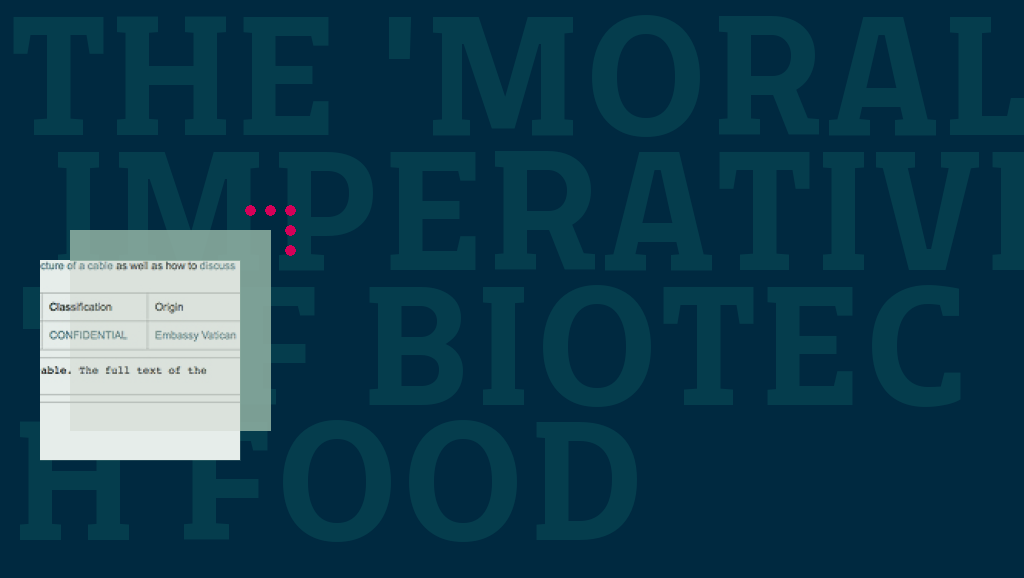Among the many U.S. diplomatic cables released by WikiLeaks is one that details U.S. pressure on the Vatican to change its stance on agricultural biotechnology.
U.S. officials stated “We will continue to press the “moral imperative” of biotech, publicizing and sharing data that show the economic benefit of these technologies to farmers, and explaining the safeguards that exist to prevent economic exploitation. Sharing information on research on non-cash crops such as cassava will also be important to winning Vatican hearts and minds.”
The cable states “the Holy See did not feel that the genetic modification of plants posed any moral problem.” Michael Osborn of the Pontifical Council Cor Unum stated “You’re going to have a few people who continue to use scare tactics about the science…but little by little, they will cease to be a factor.” It goes on to note “According to Osborn, the main issue for the Church will continue to be the economic angle of biotech food. Many in the Church fear that these technologies are going to make developing-world farmers more dependent on others, and simply serve to enrich multi-national corporations.”
Depending on one’s point of view, the discussions might be characterized as a good faith effort to ensure the latest scientific advances are applied to the problem of world hunger, in an environment that is still hostile to science and driven by superstitions about GMOs. Or these notes might prove the global reach of corporate interests, their dominance of the minds of U.S. diplomats, and their propensity to try to achieve in secret what can’t be done in public.
But normative judgements about the contents of the cable (which is worth reading in its entirety) are less interesting than the insights it offers into the modern governance of innovation. Whatever the outcome of the discussions in the Vatican, it’s the scope of concerns and the determined advocacy on the part of the U.S. that are most interesting. In how many other capitals, regarding how many other technologies, are such discussions now occurring, with essentially no oversight? And how effective are these discussions at changing or determining policies?
If governance of innovation always devolves into a power struggle between actors who can’t know the outcomes of the policies they are advocating, we’re in trouble. Given the complexity, nuance, and uncertainty around GMO foods, it’s hard not to wonder whether we up to the task of making intelligent choices about them. Perhaps more to the point, can’t we improve the process a little?
















